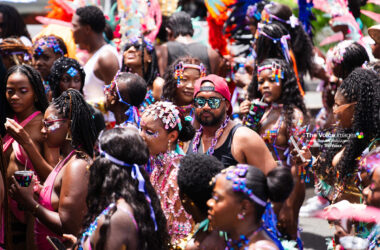With the bad weather giving us more reason to consider the ultimate cost of not paying attention to early warnings of learning from past experiences, we have another chance of revisiting how our tourism industry has fared in bad weather.
We’ve sat and watched for years as the tourism sector, here and across the Caribbean, in particular the accommodation sector, come under heavy weather from critics who lashed-out at it for being a mono-industry, questioned its relevance to our Caribbean people and unleashed a litany of discourses on ‘diversification.’
Yet, when the weather was heaviest and the forecast was for a total shutdown because of the COVID-19 pandemic, when the dark clouds of job losses and economic shutdown covered the land, it was the tourism sector that brought the light, provided shelter from the rain and — once more — breathed life into economies on life-support.
The irony, however, is that while there are those who want to use the pandemic to denounce tourism as a “vulnerable industry”, it’s proven to be the most resilient sector and has bounced back to record numbers in no time at all.
The tourism sector has been a favorite whipping boy of all the international economic, financial and related entities, with technocrats slamming moves to provide incentives that help the stakeholders invest and grow – stakeholders.
And by the way, these are stakeholders who, by Saint Lucia’s own experience, not only provide the biggest investments, but also employ the highest number of persons, because tourism is still – and very fortunately for islands like ours, still depending on it, maybe now more than ever — a labour-intensive industry.
In fact, many are now pushing the narrative that COVID has provided the opportunity to divest away from tourism, but the big question none has answered is: Divest to what, exactly: Agriculture alone? But who will consume these more local agricultural products? And can any island produce in the quantities and quality needed for export? And how do they deal with tariffs on these products?
Saint Lucia has learned and is continuing to learn that lesson the hard way, with its banana industry – and ironically, it’s the hotels and local restaurants that provide the biggest market for farmers and fisher-folk here and in many other Caribbean islands.
The point always worth making is that tourism is the partner that will hold our hand and lead the way, not the enemy. Led by brave governments and brave stakeholders, we saw the true power of tourism and the enormous potential it has for the Caribbean in recovering from the pandemic shutdown – and potential to be built upon, not turned away from.
However, tourism can help drive the economic growth necessary to invest in key sectors such as educational infrastructure.
Tourism provides employment for a wide cross section of our population — not only for restaurant and bar servers and housekeepers, but also for accountants, engineers, chefs, lawyers, architects, entertainers and landscapers; it consumes huge volumes of local products — vegetables, fish, meat and eggs — you name it…
Fate itself has intervened and let’s hope it has wiped the myopia from the eyes of the anti-tourism bunch and has taught us all a lesson: that tourism is not something to be spurned, but embraced, if only it can always be counted on in any weather, good or bad.













